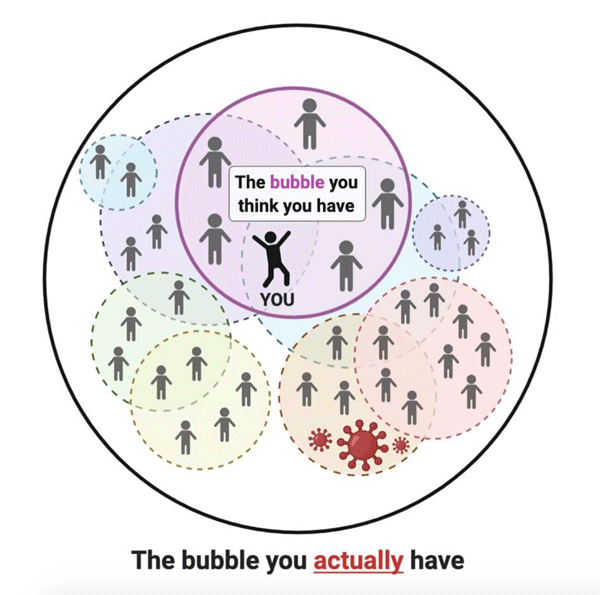A few weeks ago I read an article about some of the wisdom of Charlie Munger. Munger, who died last year at age 99, was famously the vice-chairman of Berkshire Hathaway, the corporate conglomerate controlled by the legendary Warren Buffett. In an article on Moneywise,
‘Who in the hell needs a Rolex watch?’: Why Charlie Munger warned Americans against ‘pretentious expenditures, the authors tell how Munger criticized people buying status symbols and yearning to have as much as the (wealthier) people around them. “I have conquered envy in my own life,” Munger famously said.
While I have great respect for Munger's business prowess, reading this article made me think, "Wealthy aging billionaire is out of touch with the 99.99%." I could quickly think of
two reasons far better than tongue-clucking about envy why people— people who
aren't billionaires— yearn for more and buy status symbols.
But first,
Rolex watches? Okay, Boomer. 🤣 Seriously, affluent younger people are not buying Rolex. It's like your grandfather's Buick. Other brands lead mindshare among affluent people in their 30s and 40s, even some in their 50s, today.
Now, here are the two reasons other than "envy" that immediately came to mind for why people in the middle class, and especially the upper middle, strive for more:
1. Financial SecurityThe main reason I see why those of us who enjoy a certain degree of comfort today, i.e,, those of us who are middle class & upper middle class, keep striving for more is that we are trying to create financial security. Or, to put that in terms of another of Munger's aphorisms— to structure your planning around things you want to
avoid—the imperative here is
Don't die in poverty.
Building wealth in our working years has become critical to avoid living old age in poverty. Older generations had retirement plans and confidence in Social Security. In Gen X we saw retirement plans largely disappear from the private sector when we were starting our careers. Union membership was trending down, as well. Today it's at 10% in the US– and half of that is in the public sector. Union membership in the private sector is 3%. We also saw from back in the early 1990s the upcoming demographic crunch in Social Security that will force significant benefit cuts by the time we reach retirement age. At the same time, medical costs have been spiraling ever higher. Lots of retirees with only modest nest eggs are being bankrupted by health costs. My cohort and I thus internalized from our early 20s, and have seen only further proof with every passing year, that when it comes to living in retirement,
we're on our own to avoid poverty.
Even the Moneywise article points out that Munger's tongue-clicking about envy came as he was
sitting on a multi-billion dollar pile of assets. Yeah, Richie Rich, you've got yours, 100 times over. You don't have to worry about a damn thing, and haven't for at least 50 years. Stop being a shit to those of us still trying to build even
one one-hundredth of your wealth.
2. The Needs of NetworkingWhy do people "Keep up with the Joneses?" Sure, one reason is envy. But there's another reason, too. It's more subtle. Not everyone gets it. I sure didn't when I was younger and had a very STEM/academic mindset. As I've matured in my career in business, though, it's become very obvious. To get ahead in business
you need the support of people with power and wealth. And to get that support from the powerful and wealthy,
you need to meet them where they're at.
Where are they at? For one, they're playing golf. To climb the ladder in business you need to play golf— because golf is very much a sport of powerful in business, and lots of business networking happens on the golf course. Now, golf is expensive. You may need a membership in a club. Maybe a country club? That's actually not a bad idea because wealthy people networks are centered around country clubs. People you meet and can get introduced there can make the difference between your business ideas being embraced and funded, versus you being like the proverbial Hollywood waiter with a script nobody cares about.
Oh, and while you're driving to the golf course, or the country club, or even the sailing club— another place where the demographic of business leaders hangs out— you'll need to roll up in the right kind of car. And the right shoes, watch, etc. Yes, people make snap judgments about you in the first few seconds based on your appearance. Even the wealthy do that. If you roll up in a Toyota Camry, most of this demographic is not going to admire your fiscal sensibility. They're going to look right past you. You need not just a statement watch but a statement
car.
Oh, and are your kids going to public schools? Ha ha ha, the wealthy and powerful people's kids are not. If you want to bond with them over your shared love of your kids, you need to send your kids to the same schools. Y'know, the ones that cost $50,000 a year. Per kid. And we're not talking Harvard, here. We're talking
elementary school.
"But didn't Munger climb the business ladder without such expenses?" you might ask. Yes, he did. But one counter-example does not disprove a general fact. Munger was lucky enough to meet a fellow thrifty contrarian, Warren Buffett, early in his career. Very few of us ever get the chance to be hired by a unicorn like Buffett. I also note Munger also benefited from network connections in a different way— through
family privilege. For example, when he was rejected from Harvard law school, a friend of his father's called up the dean of the school— the
dean— and
told him to admit Munger. Did Munger get through law school on his own merits? Yes; he graduated
magna cum laude. But the challenge with succeeding on merit alone is that there are also more worthy applicants, whether it's for school or a promotion or a business investment, then there are spots for acceptance. The one whose worthy application gets accepted is the one that gets shuffled to the top of the pile by networking connections. And unless you're
born into them, they cost money to build.





 This is a troll. But do the characters know it's a troll? (Assume the word "Troll" is not painted on the grass at its feet. 😂) Moreover, do the characters know that trolls quickly regenerate damage from ordinary weapons and spells, and are only truly vulnerable to fire and acid? High level character likely would but lower level characters would not.
This is a troll. But do the characters know it's a troll? (Assume the word "Troll" is not painted on the grass at its feet. 😂) Moreover, do the characters know that trolls quickly regenerate damage from ordinary weapons and spells, and are only truly vulnerable to fire and acid? High level character likely would but lower level characters would not.

